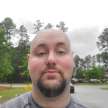Social Frameworks of Ecological Psychology
A Community Psych Perspective on Alternative Settings

Within the area of ecological psychology, ecological frameworks seek to improve the conditions of an environmental setting that affect functioning such as trying to create new behavior settings or change existing ones (Barker, 1968, as cited in Kettner, Moroney, & Lawrence). Barker defines a behavior setting as having a time, place, and pattern of behavior (1968, as cited in Kettner et al.). A person engages in many behavior settings everyday such as classrooms, stores, and jobs. However, not all of these behavior settings may be constructive to a person’s wellbeing. When this happens, we try to change existing settings to better adapt them to be more constructive (Kettner et al., 2013).
However, changing firmly established settings is not always easy. Existing settings and the community of individuals who reside in them try very hard to maintain the status quo and resist change (Kettner et al., 2013). Therefore, we move on and try to create what community psychologists call alternative settings. Alternative settings do not necessarily replace existing settings, they just seek provide supplemental conditions for promoting wellbeing which the existing setting does not do (Kettner et al., 2013).
A major example of an alternative setting is the classic community lodge study (Fairweather et al., 1969, as cited in Kettner et al.). Fairweather along with others realized that the simple hospital setting did not promote autonomy and independent living in those with serious mental illness (Fairweather et al., 1969, as cited in Kettner et al.). Also, even when group sessions to promote social skills were used, participants still did not show prolonged participation in a community and returned to the hospital at high rates (Fairweather et al., 1969, as cited in Kettner et al.).
Due to the high instance of returning patients and lack of community skills among released patients, Fairweather and associates created an alternative setting to promote social wellbeing among released patients. These patients moved together to a single residence in the community and lived together to promote wellbeing among the released patients (Fairweather et al., 1979, as cited in Kettner et al.). This is called a community lodge, where the community is actually living together to promote the wellbeing of the individuals and the functioning of the community (Barker, 1968, as cited in Kettner et al.).
In the lodge, after several trial and error experiences, the members of the lodge became self-governing, economically self-sufficient, and rates of re-hospitalization, even for the most seriously mentally ill members, saw a huge decrease (Fairweather et al., 1979, as cited in Kettner et al.). One major change seen between the normal mental health practices and the community lodge practice is that health professionals in traditional settings act as governors of the setting where as in the community lodge setting the health professionals are simply collaborators in the community setting and the actual patients are the governors (Fairweather et al., 1979, as cited in Kettner et al.).
In the community lodge, routines of governance, chores, and responsibilities to the lodge were institutes by the members to facilitate smooth functioning. This plays directly into the concept of program circuits by Barker (1968, as cited in Kettner et al.) in which routines and guide the standing pattern of within the lodge. Goal circuits are also seen in the community lodge. Goal circuits are a pattern of routines that are moving an individual or community towards a goal (Barker, 1968m as cited in Kettner et al.). In the community lodge, individuals and the community live together to help improve quality of life and autonomy within a community (Fairweather et al., 1979, as cited in Kettner et al.). This is a goal and plays directly into a goal circuit.
Kelly, Trickett, and colleagues (1966, 1972, 2000, as cited in Kettner et al.) outlined four proposed four ecological principles that apply to human environments. These four principles are Interdependence, in which individuals in a community are interdependent on one another for resources and support, cycling of resources, meaning that a community can be understood from how resources cycle through it, adaptation, in which individuals adapt to changes in the environment and the environment is changed to adapt to individuals within it, and succession, in which relationships breakdown and change over time (Kelly et al., 1966, 1972, 2000, as cited in Kettner et al.). These apply to the community lodge as you see adaptation of new members to this new environment and the environment changes to accommodate new members, succession of relationships cause members of a lodge to form new relationships with each other and those outside the community, interdependence in the lodge as members rely on other members to aid their autonomy and mental health recovery, and cycling of resources as resources move between members of the lodge and in and out of the community itself.
The Fairweather community lodge is a very good example of an alternative setting and its relation to mental health. Social regularities of professionally supervised and professionally governed mental health facilities still persist among many mental health professionals (Kettner et al., 2013). Despite this fact, the community lodge model is growing in popularity and gaining momentum in research. The research findings of the community lodge model of mental health communities show strong support for this mental health model and continues to be researched to make the community lodge model a more widely accepted evidence-based practice (Haertl, 2007, as cited in Kettner et al.).
References
Kloos, B., Hill, J., Thomas, E., Wandersman, A., Elias, M. J., and Dalton, J. H. (2012). Community psychology: Linking individuals and communities. Belmont, CA: Wadsworth Cengage Learning.
About the Creator
Cobe Wilson
Gamer, writer, poet, academic.
Purchase photography or merchandise here!!! --> https://the-photography-of-cobe-wilson.creator-spring.com/






Comments
There are no comments for this story
Be the first to respond and start the conversation.